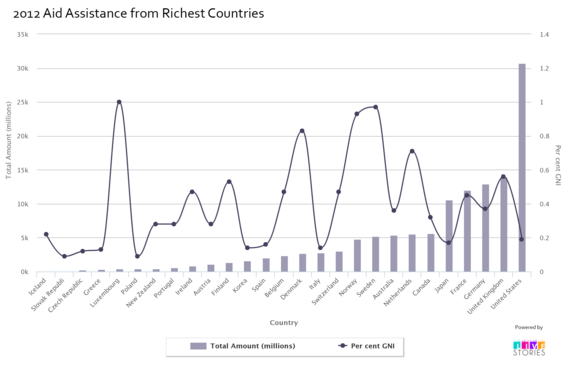My Dearest Aleena,
Happy 1st birthday. When you were born a year ago, I shared with you 5 lessons your mother and I learned about philanthropy while building Jolkona. We hope as you get older, you will prioritize helping others. But, where do you begin? How do you start to make a dent in what seems like intractable problems?
Whether you volunteer or make a donation or start your own initiative, these 3 tips can help you to maximize your impact:
- Understand the history of broken promises. In 1970, the richest countries in the world agreed to give 0.7% of their GNP (now GNI) to developing countries. Since then, most of the countries have never come close to that commitment and in fact, have continued to fall continuously. In 1960, the total OECD (comprised of the richest countries in the world) aid distribution was 0.51% of the GNI of these countries. In 2013, that number was down to 0.3%. Since 1970 these countries have given an enormous3.19 trillion in aid, but, the accumulated total shortfall in aid since 1970 amounts to4.37 trillion. The shortfall is not the reason we have such large scale problems. Rather it is a large scale example of how the people who need help have continuously received empty promises - from NGOs, individuals who confidently think they have all the answers, local governments, or international aid. Again and again, these people were told their problems would be solved but, somehow, they never get fully solved. Other priorities always seem to get in the way. They have become accustomed to the broken promises; don't become another example of it.

UNICEF says 18,000 children under the age of 5 die every day from preventable causes. In the 1 year you have been alive, over 6.5 million children under the age of 5 have died. 70% of them died from six causes: diarrhea, malaria, neonatal infection, pneumonia, preterm delivery, or lack of oxygen. These were preventable deaths. Which means we chose not to prevent them - there were other things that became higher priority.
The under-five mortality rate now is half of what it was in 1990. During the same time period more than 200 million children have died before their fifth birthday. Healthy children was a broken promise to the parents of those 200 million children. While we have great stats showing significant reduction of mortality rates, we have equally significant stats showing how many children continue to die from preventable causes.
Thankfully, you haven't faced any of these problems yet and you have a great chance to reach your fifth birthday. The world has given you a lot and it is only right, you give back to it.
When you decide to give back, remember to do these well - 1) break the cycle of broken promises, focus on solving a problem, and listen to those you are trying to help.
Love,
Bazan
